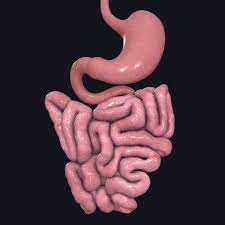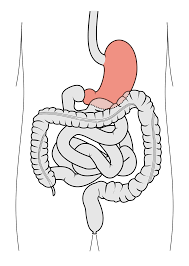Small Intestine
- Nov 20, 2022
- 2 min read
The Small Intestine
The small intestine system is one of the main parts of the body and it . It is a component of the gastrointestinal (GI) tract, which is the long course that food takes through your body. When food exits your stomach, it travels to the small intestine, also known as the small bowel. The small bowel links to the big bowel, commonly known as the colon or large intestine. The intestines are in charge of breaking down food, absorbing nutrients, and solidifying waste. The small intestine is the longest section of the GI tract and is responsible for the majority of digesting.

Parts of the Small Intestine
The small intestine is divided into three sections: the beginning, the middle, and the end. Despite the fact that there is no true distinction between the parts, they do have somewhat varied traits and duties to play. The duodenum is the first section of the small intestine into which the stomach feeds. It is a small tube that curves in a "C" form around the pancreas before joining to the remainder of the coiled intestines. The remaining small intestine is arranged in several coils throughout the lower abdominal cavity. Its middle part, known as the jejunum, accounts for somewhat less than half of the remaining length. The jejunum is distinguished by many blood arteries that give it a rich crimson hue. The ileum is the small intestine's last and longest portion. The small intestine's walls begin to shrink and narrow, and blood supply is limited. Food spends the greatest time in the ileum, which absorbs the most water and nutrients.
What happens if the small intestine does not work
The small intestine takes nutrients and water from the food that you eat and sends it out to the body so that the body can get its sustenance. You may become weaker due to the lack of food and also contract diarrhea if these functions are disrupted. The small intestine's muscular contractions help the food in the body pass through the intestinal system without getting stuck. Failure in the small intestine may lead to food getting stuck which could lead to indigestion and constipation. This shows that the small intestine is very important and is needed in the body.Without it, life becomes difficult and requires constant monitoring.
Conclusion
In conclusion, the small intestine is one of the most important organs in the entire body. It helps the body survive and function by absorbing nutrients from the food that we eat. It helps in every system from the cardiovascular system to the nervous system to the digestive system.Without the small intestine, Humans would have to live through constant regulation. The small intestine is truly a wonderful thing.




Comments